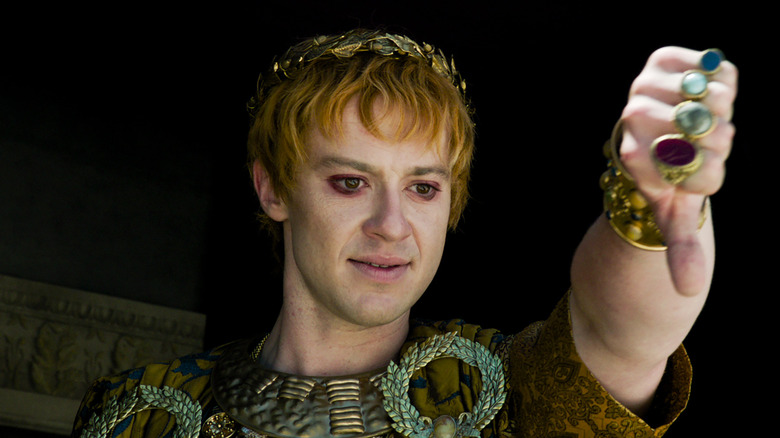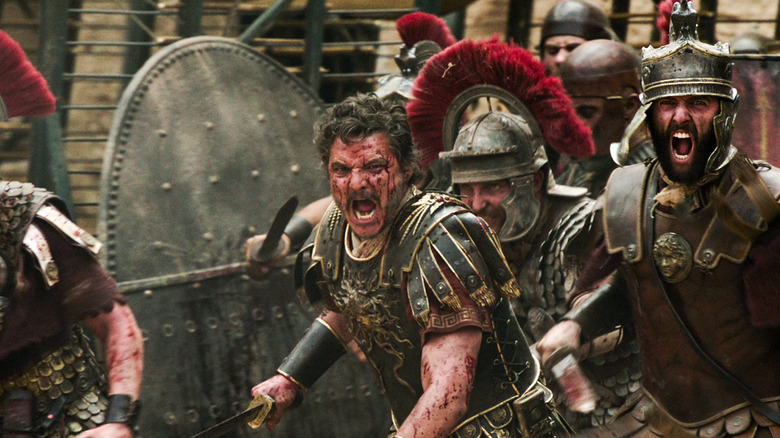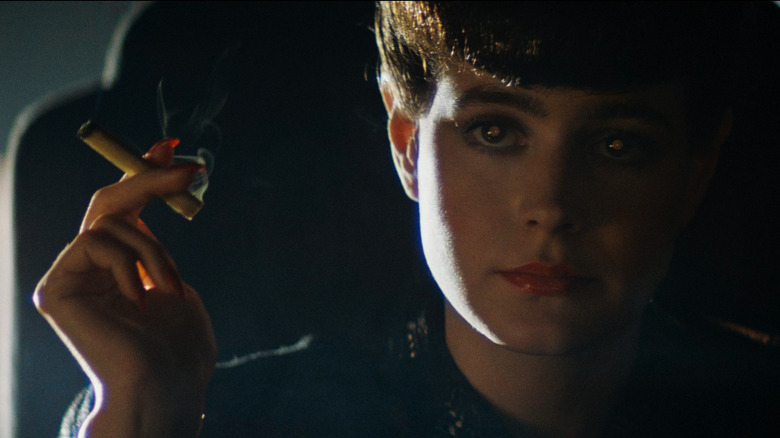Gladiator II Cinematographer Is Not Holding Back On Director Ridley Scott: 'It's Really Lazy'
Ridley Scott's bombastic "Gladiator II" has been slicing its way through the box office thank to its incredible cast and people's love for the original film, although critics have been slightly less enamored with the sequel. Our own "Gladiator II" review praised Denzel Washington's performance as gladiator promoter Macrinus in particular and noted that there are a number of impressive action scenes, but also several parts that fall flat. No amount of pure spectacle can make up for a good story or thoughtful filmmaking, and unfortunately, it sounds like Scott might have had the wrong priorities during production.
In a podcast interview with "DocFix" (via WorldofReel), "Gladiator II" cinematographer John Mathieson called Scott's approach to the film "lazy," adding that he had changed over the years that they had worked together. Mathieson has collaborated with Scott on six of the director's films so far, including the original "Gladiator" back in 2000, and he said on the podcast that modern technology and Scott's workhorse attitude had led him to make some creatively hacky decisions. Yikes. It sounds like they probably won't be working together again...
Computer editing and multiple cameras were a nightmare for Mathieson on Gladiator II
On the podcast, Mathieson shared his feelings about working with Scott on "Gladiator II," and he was not complimentary of his long-time collaborator, saying that Scott relies heavily on computer graphics to clean up things that shouldn't be in the frame (like other cameras and boom mic shadows), which he feels is "really lazy." Mathieson also described Scott as "quite impatient," adding that he likes to get "as much as he can at once." That means using a lot of cameras to get as much coverage as possible, which is itself a cinematographer's nightmare since you can only "light from one angle." As Mathieson explained:
"Having lots of cameras I don't think has made the films any better [...] It's a bit rush, rush, rush. That's changed in him. But that's the way he wants to do it and I don't like it and I don't think many people do, but people love his films and he's Ridley Scott and can do what he wants. People want to shoot multi cameras because they get lots of performances and they put lots of people in. But there's not the care."
Mathieson also pointed out that Scott's older films are much different, with a lot of attention paid to lighting. That's impossible to do with a big multi-camera setup, but Mathieson feels that Scott "just wants to get it all done." Scott is extremely prolific even at 87 years old, having released "The Last Duel," "House of Gucci," "Napoleon," and "Gladiator II" all within the last three years, and he has a number of other projects coming down the pipeline. That means sacrificing certain things, including, it seems, thoughtful cinematography.
Has Scott sacrificed artistry for spectacle?
This isn't the first time someone has pointed out Scott's use of multiple cameras. Christopher Plummer once told The Hollywood Reporter that he was able to film his scenes for the reshoots on "All the Money in the World" (replacing the then recently-disgraced Kevin Spacey) in only nine days because "[Scott] only does one or two takes because he covers it so well with cameras." Actors who want to get their day done might love that tactic, but those who want to really go for the best take possible probably feel a little rushed. It's easy to see how people might feel like Scott has started prioritizing quantity over quality, especially when it comes to taking the time for a bit of cinematic artistry.
If you look at Scott's earliest films, like "Blade Runner" or "Alien," lighting plays a major role in creating atmosphere and mood. "Blade Runner" is not only one of Scott's favorite movies and a science-fiction masterpiece, but it's actually sometimes used to teach lighting because it's absolutely beautiful. Even when he was starting to make bigger blockbuster movies like the first "Gladiator" and "Kingdom of Heaven" (which Mathieson also shot), there's a lot of attention paid to individual camera angles and creating a visual aesthetic, whereas his later films can feel a little more rushed. Don't get me wrong, I love Sir Ridley and his filmography, but Mathieson definitely has a bit of a point. Should Scott slow down and make fewer films or continue to sacrifice his old-school keen eye for visuals in the service of getting it all made? As much as I would love to see him go back to his roots a bit, in the end, it's all up to him. And at this point in his career, no one tells Ridley Scott what to do.
"Gladiator II" is currently playing in theaters.


